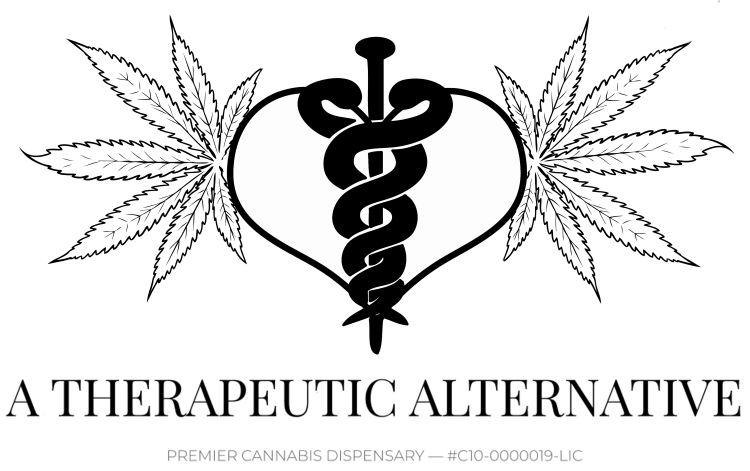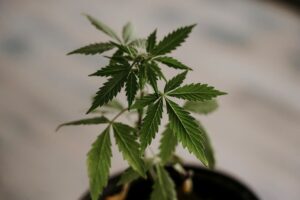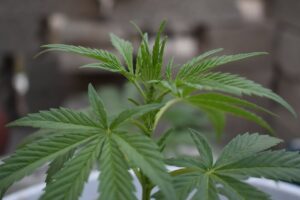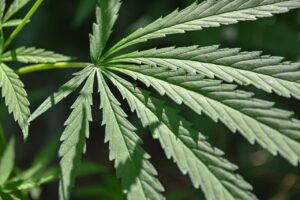Table of Contents
ToggleKey Takeaways
- Micro-dosing cannabis is taking just enough to feel therapeutic effects without feeling high. Lately, it’s received a lot of buzz for its ability to help people quit using substances, including alcohol and prescription pills.
- Substance dependency has a severe impact on the brain and body, complicating all pathways to recovery. Micro-dosing cannabis could provide a valuable, complementary approach to help manage withdrawal symptoms, cravings, and accompanying mental health challenges.
- Additionally, early research suggests that cannabinoids can combat imbalances in brain chemistry caused by alcohol, ease cravings, and alleviate mood disruptions during recovery. With the right knowledge about how people respond to it, we can maximize its benefits.
- That’s why personalized treatment plans are key, helping each individual find the right path forward. Their personal history, genetics, and their mental health all should be taken into account. Beginning with smaller amounts and making gradual adjustments are key to ensuring safety and effectiveness.
- In particular, consulting with healthcare professionals is critically important before starting any kind of micro-dosing regimen. They can offer personalized guidance, track your progress, and make sure your cannabis use fits into your broader recovery strategy.
- Legal issues related to cannabis use differ from place to place. Staying updated with local laws and regulations is indeed essential to incorporate micro-dosing safely and ethically into your recovery journey.
Micro-dosing cannabis can be part of effective, low-cost, and enjoyable solutions to help those who want to quit drinking or move beyond prescription pills. Whether to help with mood, cravings, or both, many people find relief when they take controlled, smaller amounts of cannabis. They report that it improves their stress management.
Studies on how cannabis affects substance dependency are still in the early stages. Preliminary results indicate that micro-dosing can reduce withdrawal effects and facilitate emotional regulation. A cautious, measured approach along with the support of an experienced professional sets the stage for uncovering whether this exciting new method can help you achieve your unique goals.
In this post, we’ll dive into the science behind micro-dosing cannabis. We’ll explore those potential benefits, as well as how to go about it responsibly.
Understanding Micro-Dosing Cannabis
Micro-dosing cannabis generally refers to using small, controlled amounts of THC. This approach ensures that you experience all the therapeutic benefits you seek, without experiencing the high typically associated with cannabis use. This method provides users the opportunity to find relief or enhancement of targeted conditions without clouding their day-to-day function.
A microdose in the cannabis space usually means anything under 5 milligrams of THC. The majority of users start at 2.5 mg. Microdoses are high enough to produce strong effects, but low enough that they don’t get in the way of your day. This unique balance draws in people seeking new ways to cope outside of conventional pharmaceuticals and excessive alcohol consumption.
While naturalistic micro-dosing has gained considerable popularity through the psychedelics movement, this method is not limited to cannabis. Today, its popularity is surging—especially within the world of medical marijuana. Take cannabis tinctures for example, which often contain 5 milligrams of THC, a popular dose widely touted as perfect for micro-dosing.
When utilized appropriately, higher-potency cannabis strains can provide impressive therapeutic effects. People can experience these benefits while avoiding any psychoactive effects that would distract them or interfere with their productivity. Research has even shown that impacts extend beyond alleviating symptoms, potentially reducing the severity of alcohol use disorders.
A 2017 study published in Nature Medicine found cognitive-enhancing effects tied to micro-doses of THC in animal models. This unexpected finding indicates that these doses might provide more extensive potential therapeutic benefits.
Micro-dosing additionally holds the potential for alleviating dependence on substances such as alcohol and prescription opiates. Findings from observational studies indicate that when people use cannabis in place of alcohol, they experience a reduction in binge drinking likelihood.
Cannabis fills that niche for participants as an alternative to alcohol consumption. Responses vary, so starting low and adjusting incrementally by 1 milligram every few days ensures safety and effectiveness, promoting sustainable treatment alcohol use outcomes.
What Is Substance Dependency?
Substance dependency is more than an addiction. People begin doing things necessary to maintain the use of that drug/substance that damages their health, relationships, or ability to thrive. This substance dependency usually includes both mental addiction and bodily dependence, which would make quitting on their very own tough to do without organized help.
Alcohol and prescription medications such as opioids and benzodiazepines are very addictive. Their ubiquitous use plays a huge role in dependency problems. These substances change brain chemistry making it easy to get into cycles of use that are impossible to stop.
Dependency is primarily psychological. Emotional triggers, stress, and untreated co-occurring mental health conditions often fuel the cycle of use. On the physiological side, withdrawal symptoms including nausea, tremors, and anxiety may set in once the substance is lowered or eliminated.
As an example, alcohol dependency can lead to life-threatening withdrawal symptoms. This risk increases when combined with benzodiazepines or other sedatives such as GABA agonists, which can result in serious and life-threatening health consequences.
Substance dependency has a significant impact on our communities as well, overburdening the healthcare system, tearing families apart, and leading to lost productivity in our workplaces.
One strategy that people use to quit one substance for another, such as cannabis. On the flip side, cannabis poses unique risks that Americans should be informed about. The U.S. National Institute on Drug Abuse states that 9% of people who use cannabis will become dependent.
Additionally, a limited body of evidence indicates that occasional cannabis users are more likely to drink lower amounts of alcohol on days when they use cannabis. This substitution may be fraught with dependency dangers.
How Can Micro-Dosing Cannabis Aid Recovery?
More people are turning to micro-dosing cannabis. It represents a promising complementary strategy for people recovering from any kind of substance dependency, including alcohol and prescription pills.
Fitting in low, manageable doses of cannabis can have positive impacts on both physical and mental health. This method serves as a hopeful alternative while healing from addiction. It works to alleviate withdrawal symptoms and curb cravings. It provides emotional stability while allowing for a more durable healing process.
Explore The Science Of Micro-Dosing
The endocannabinoid system has been shown to help regulate stress, mood, and addiction behaviors. Cannabinoids, like THC and CBD, work on this same system, affecting the same brain chemistry associated with addiction.
Neuroplasticity studies back up the idea that micro-dosing can make you more neuroplastic. This capacity of the brain to adapt and restore is key during withdrawal and recovery. Many ongoing studies are trying to concrete the benefits of cannabis. Early results have still generated enough compelling and exciting data to suggest it’s having beneficial effects on addiction pathways.
Understand Addiction And The Brain
Addiction alters brain chemistry, especially in regions managing one’s reward systems and regulation of impulses. Other substances, including alcohol and prescription pills, produce similar effects by drastically taking control of these dopamine and serotonin levels, facilitating dependency.
Cannabis compounds may be able to restore this balance of neurotransmitters, speeding recovery. Knowledge of these effects makes it possible to create targeted, evidence-based treatment plans.
Micro-Dosing For Withdrawal Symptoms
Withdrawal symptoms, such as anxiety, irritability, and fatigue, frequently complicate and obstruct recovery. Micro-dosing cannabis could help mitigate these negative effects.
Less severe symptoms have been reported; when using cannabis, 45–75% of patients had “less severe” symptoms. This reduction in discomfort and withdrawal makes staying in recovery more comfortable and sustainable.
Reduce Cravings With Micro-Dosing
By modulating brain activity tied to craving, cannabinoids may help reduce cravings for alcohol or pills. At least 70% of study participants decreased or stopped using other substances after adding cannabis.
Personal accounts drive home its powerful effectiveness in craving management.
Improve Mood And Reduce Anxiety
Micro-dosing cannabis can help promote mood stabilization and reduce anxiety, two major hurdles for 60% of people in recovery from alcohol addiction. By promoting positive mental health, cannabis aids in establishing a foundation for long-term sobriety.
Enhance Sleep Quality Naturally
Since recovery can come with issues in sleep regulation, this is an area in which micro-dosing can be beneficial. Increased sleep quality promotes both better health and faster recovery.
This makes it a safe natural option to help replace pharmacological sleep aids.
Support Mental Health Holistically
Supporting mental health is crucial in recovery. Mental health treatment can’t be an afterthought in recovery.
When microdosed, cannabis therapy complements other therapies, aiding resilience and psychological health, and enhancing the benefits of treatment.
Individual Factors In Recovery
Recovery from surgery or injury is highly individual, shaped by a person’s genetics, lifestyle, and history, including any potential substance use disorders such as alcohol addiction or cannabis dependence. Personalized micro-dosing plans, developed in partnership with healthcare professionals, are focused on each person’s unique goals and needs to optimize effectiveness.
Dosage And Strain Considerations
Beginning with low doses and trying different cannabis strains can help ensure the process is safe and effective, especially for those concerned about cannabis dependence. Careful monitoring of each adjustment aids in avoiding negative side effects while moving toward the desired outcome.
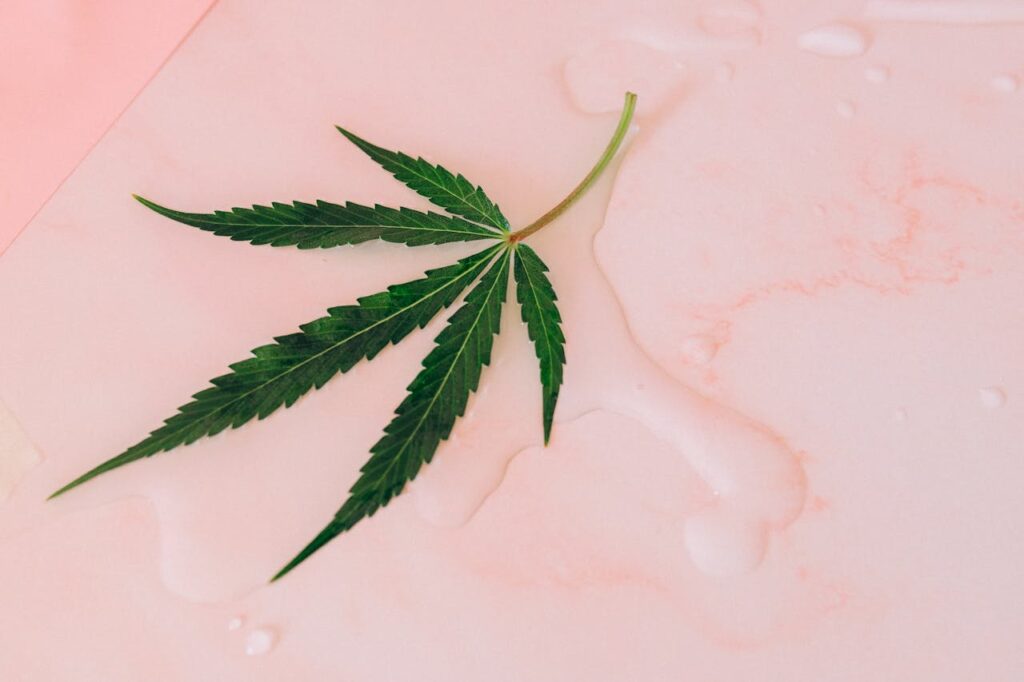
Potential Benefits Of Micro-Dosing
Micro-dosing cannabis means using low doses of THC, usually no more than 1 to 5 milligrams. This novel approach has recently been making headlines for its purportedly profound capability to provide therapeutic benefits. It does this without creating the overwhelming psychoactive experience usually associated with larger doses of cannabis use.
With micro-dosing, anxiety can be alleviated, pain can be eased, sleep naturally improves, and concentration grows, all without any overwhelming effects. Begin, for instance, at 2 milligrams of THC per day. Next, raise the dose in 1-milligram increments until you identify the desired effects. A typical introductory dose of 2.5 milligrams provides a subtle calming effect. This sets the stage for a smooth yet substantial enhancement to your overall wellness.
Perhaps the most notable benefit of micro-dosing is its ability to improve focus and productivity. Unlike other methods of using cannabis, which may negatively affect cognitive function, micro-dosing aims to enhance mental clarity and focus. This combination makes it an attractive option for people who want to relieve stress or chronic pain but still be able to tackle the day’s to-do list effectively, reducing the binge drinking likelihood.
Tinctures, capsules, or low-dose edibles make it easy to microdose discreetly. This makes it perfect for seamlessly integrating into your daily routine without raising any eyebrows, allowing for a healthier alternative to alcohol consumption.
Therapeutically, micro-dosing has been effective in decreasing dependence on alcohol and prescription drugs. Research has found a 29% decrease in alcohol intake on days when cannabis was used. In another small review of 92 patients, all participants found that cannabis worked better as an alcohol substitute, highlighting its potential in alcohol addiction treatment.
Particularly during these times of austerity in defense of cannabis, this finding underscores cannabis’ role in harm reduction potential. This highlights the potential benefits of micro-dosing within a wider context of promoting healthier behaviors and enhancing overall quality of life, especially for those struggling with substance use disorders.
Risks And Side Effects To Consider
When exploring micro-dosing cannabis as a potential aid for reducing alcohol or prescription drug usage, understanding the associated risks and side effects is essential. This is primarily because individual responses to cannabis can vary widely, affected by factors such as tolerance, metabolism, and personal health history.
While some might feel positive effects from micro-dosing, others might experience unintended negative impacts. As with any new practice, it’s important to consider this practice thoughtfully and critically.
Potential Interactions With Medications
Cannabis has the potential to interact with other prescribed medications, especially those that go through the liver. Increased risk of serious liver injury when combining cannabis with GABA-acting drugs such as benzodiazepines, opioids, and alcohol.
For people tapering off of benzodiazepines, dangerous seizures or psychosis can develop, and introducing cannabis to this process could further complicate these side effects. That’s why vigilant monitoring for adverse reactions is critical given that 9.5% of study participants had reported co-use with opioids and/or other drugs.
Transparency and continuing dialogue with healthcare providers should be encouraged to adapt regimens and develop individualized treatment plans that safely integrate cannabis.
Documented Side Effects Of Micro-Dosing
Micro-dosing cannabis can produce mild side effects including dizziness, increased fatigue, or mood changes. These effects vary depending on strain, dosage, and user tolerance.
Understanding these signs allows users to adapt and mitigate or prevent negative experiences. Clear documentation of usage patterns can be useful for recognizing potential triggers or benefits, leading to a safer and more effective approach.
Contraindications For Certain Individuals
Certain populations, such as those with mental health disorders, may face heightened risks. Consulting healthcare professionals before starting is critical to assess suitability.
For some conditions, micro-dosing may not be advisable, reinforcing the need for personalized evaluations.
Integrating Micro-Dosing Safely
If you’re thinking of using micro-dosing cannabis to help you quit alcohol or prescription medications, a more intentional approach is needed. We define micro-dosing as deliberately taking small amounts of THC, often 1-5 milligrams. This approach ensures therapeutic effects like anxiety reduction, pain relief, better sleep, and increased ability to focus occur, with limited major psychoactive effects.
Like all pharmacological interventions, this approach needs to be meticulously studied and administered to achieve the highest benefit and least risk. Fitting recovery into everyday life is crucial. Establishing clear routines, setting realistic goals, and tracking progress can help develop a sustainable path toward active recovery and healthier habits.
Consult Healthcare Professionals First
Lastly, professional oversight is critical when micro-dosing to enhance your recovery. Providers who are friendly toward medical marijuana will often be more skilled at tailoring your cannabis use to your specific requirements. They consider your history of substance use, physical health, and mental health.
They can recommend starting doses, like 2 milligrams of THC per day, and guide gradual adjustments. Consistent check-ins with your provider help to track progress, make adjustments, and refine treatment plans together. With their support, you’ll be able to make the right decisions at the right time and avoid future pitfalls before they become obstacles.
Start With A Low Dosage
Start with the lowest dose that has a perceivable positive effect. For the majority, this translates to beginning with 1-2 milligrams of THC per day, continuing to raise the amount by 1 milligram as necessary.
Develop a mindset based on patience and self-awareness. Being in this adjustment period is completely normal. Keeping a written record of what you experience can help clarify patterns and adjust your dosage to achieve the best results.
This step-by-step approach is important for both safety and efficacy as your body becomes accustomed.
Monitor And Adjust Dosage Carefully
Frequent feedback is key to making sure micro-dosing is the right fit long-term. By journaling your experiences, you’ll build a useful resource that shows you what your body and mind respond to best.
You may need to make changes over time as your recovery deepens or your needs change. Room for flexibility and reflection creates a tailored approach that helps ensure integration will yield long-term positive outcomes.
The Legal And Ethical Landscape
Even the legalities of cannabis are ever-evolving, which drastically shapes the discussions around micro-dosing it, particularly as a method to stop drinking or reduce reliance on prescription drugs. Across the United States, the booming legalization of cannabis has normalized its use. As of today, a majority of states have legalized cannabis for either medical or recreational use, creating a significant shift in the landscape of substance use disorders.
This rapidly changing legal and ethical landscape offers an exciting opportunity for those who seek alternatives to high-use substances like alcohol—particularly among heavy drinkers. It’s important to know that these laws can differ dramatically from one jurisdiction to the next. Some jurisdictions allow micro-dosing under certain criteria, while in others, it is still illegal to possess or use them at all, impacting the drinking behaviors of local populations.
Understanding your local laws and guidelines helps not only keep your work responsible but also helps you avoid potential legal trouble. From an ethical standpoint, the promotion of cannabis as a treatment option for alcohol dependence needs to balance the benefits and risks. Research indicates that cannabis could be used as a replacement for alcohol, potentially reducing alcohol cravings.
In one survey, 85% of respondents said they’ve had reduced side effects from cannabis in comparison to prescription drugs. According to the US National Institute on Drug Abuse, about 9% of users become dependent on cannabis. This concerning statistic underscores the potential for cannabis addiction, highlighting the need for a responsible promotion that prioritizes safety, effectiveness, and harm reduction.
Substitution therapy models measure relative safety and addiction levels, providing a basis to measure cannabis comparatively against alcohol. Following changes in the legal landscape is just as important. With 53% of surveyed Americans saying they drink regularly, increased access to cannabis will certainly affect people’s alcohol consumption.
Laws and attitudes are rapidly evolving. By knowing what these broader implications are, you can strategically consider how to approach this tricky legal and ethical landscape surrounding both alcohol use and cannabis consumption.
Exploring Cannabis As An Alternative
Cannabis is gaining recognition as a safer, more holistic alternative to traditional addiction treatments. Unlike other medications commonly prescribed for addiction recovery, cannabis provides a natural alternative with less extreme side effects.
A 2016 survey of California medical cannabis patients had some shocking findings. Ninety-two percent reported the side effects of cannabis to be preferable to those of opioid-based medications, and eighty percent found cannabis to be more effective for pain relief. This sets the stage for cannabis to become a more appealing alternative for users who want to steer clear of addiction dangers tied to prescription medications.
Cannabis VS. Alcohol: A Comparison
Cannabis is quite different from alcohol in how it impacts our bodies and brains. The table below illustrates key distinctions:
Aspect | Cannabis | Alcohol |
Impact on Body | Reduced inflammation, pain relief | Liver damage, dehydration |
Impact on Mind | Calming, anxiety reduction | Impaired judgment, depression |
Addiction Potential | Lower risk | High risk |
Withdrawal Symptoms | Mild (e.g., irritability) | Severe (e.g., tremors) |
According to studies, 100% of patients replacing alcohol use with cannabis reported it as effective, with 50% rating it a “very effective” way to manage their health needs.
Social acceptance and legal acceptance are not yet in sync, leaving consumers to negotiate the rapidly changing legal landscape and social mores carefully.
Cannabis For Anxiety Relief
Micro-dosing cannabis could reduce anxiety, specifically by addressing stress with cannabinoids such as CBD and low-level THC. CBD oils lead to medicinal use (65.1%) and are preferred because they are considered to be more calming.
Individualized dosing is extremely important, as psychoactive responses can differ immensely depending on the individual’s tolerance and physiological needs.
Cannabis For Improved Productivity
Whether you seek to boost your focus or creativity, micro-dosing cannabis provides a non-intoxicating way to achieve balance. When used responsibly, cannabis helps facilitate work-life balance, offering a more natural solution to everyday productivity hurdles and reducing the likelihood of excessive alcohol consumption.
Conclusion
Micro-dosing cannabis provides a new path for people who want to get away from alcohol or prescription pain pills. It is intended to be used in low doses that deliver very subtle effects, disrupting cravings, mood, or stress before they’re experienced without being noticeable in your everyday life. For others, it can serve as a supportive tool to help them take back control and develop healthier habits. That’s not a simple, one-size-fits-all answer. While this practice should be approached with caution, it’s important to consider the risks, know your local legal threshold for cannabis possession, and make an informed decision.
If you have questions, consult a qualified professional. What’s important is determining what’s going to work for you your recovery and your wellness. Research alternatives, keep learning, and most importantly, make your health the priority. Change occurs one decision at a time, and with the proper support, it can change everything.
Frequently Asked Questions
1. Can Micro-Dosing Cannabis Help Reduce Alcohol Or Prescription Pill Dependency?
Cannabis micro-dosing can help with alcohol cravings and withdrawal symptoms, allowing individuals to more comfortably cut down on alcohol use or pills. It’s important to note that it’s not a cure but rather a tool, and should be part of a wider recovery plan under medical supervision.
2. What Is Micro-Dosing Cannabis?
Micro-dosing cannabis is the intentional use of small quantities, typically 1–2 milligrams of THC or CBD. By micro-dosing, frequent cannabis consumers can enjoy therapeutic effects without experiencing the intoxicating effects of a high.
3. How Does Micro-Dosing Cannabis Work In Recovery?
By taking small doses of cannabis, users can improve mood, quality of sleep, and overall anxiety levels—all common struggles during recovery from alcohol use disorders. Cannabinoids work with the body’s endocannabinoid system to create homeostasis.
4. Are There Risks To Micro-Dosing Cannabis During Recovery?
Potential downsides may include cannabis dependence, creating a higher tolerance, or negative side effects such as increased anxiety. As always, check with your healthcare provider before beginning any new regimen.
5. Is Microd-Dosing Cannabis Legal In The U.S.?
Unfortunately, cannabis laws still vary greatly by state, impacting cannabis use and its potential effects. Always check your local laws before starting micro-dosing to avoid any legal issues.
6. What Are The Benefits Of Micro-Dosing Cannabis For Mental Health?
With legalization, micro-dosing cannabis can be life-changing to manage stress, anxiety, and depression. Thirdly, it can help improve concentration and mood regulation, both factors key to successful alcohol recovery.
7. Can I Use Micro-Dosing Cannabis As A Standalone Recovery Method?
As with any form of treatment for substance use disorders, micro-dosing should go hand-in-hand with a more tailored recovery plan involving therapy, support groups, and medical professionals to address cannabis use and alcohol addiction.
Looking For A Cannabis Dispensary You Can Trust?
For over a decade, we’ve been championing the rights of medical cannabis patients and redefining what it means to inspire wellness. At A Therapeutic Alternative, we’re not just about offering premium cannabis products but about creating a community where health, knowledge, and compassion thrive.
Located in the heart of Midtown Sacramento’s medical district, our dispensary is more than a place to shop—it’s a hub for empowerment and education. Whether you’re a seasoned cannabis enthusiast or exploring its benefits for the first time, our knowledgeable staff is here to guide you every step of the way.
We take pride in offering premium products, including top-notch Indica Vape Cartridges. Our accessibility-focused facilities, featuring an ADA lift and convenient parking options like a lot directly behind us and free street parking, make visiting us seamless. Our commitment to professionalism, compassion, and integrity sets us apart in the industry.
Ready to experience cannabis done differently? Join us at A Therapeutic Alternative and discover how holistic health can transform your life. Visit us today—your path to wellness starts here!
